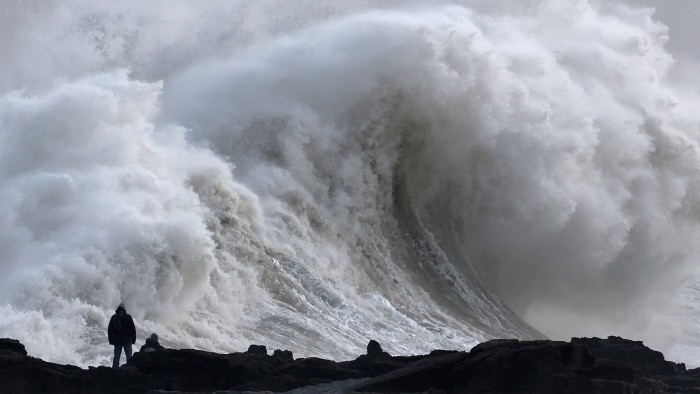Stay informed with free updates
Simply sign up to the Renewable energy myFT Digest — delivered directly to your inbox.
Britain boosted its electricity exports to France on Friday as high winds that ripped across the country gave it excess supplies of power.
France turned down the power it produces from its nuclear fleet by as much as 4 gigawatts — enough for millions of homes — as it imported extra electricity from Britain, according to Montel Analytics.
It highlights the changing nature of the power system as intermittent wind and solar energy are used to provide electricity to homes, businesses and factories.
Winds of up to 114mph from Storm Eowyn also show Britain’s growing dependence on its neighbours to buy and sell electricity to balance out an increasingly weather-dependent power system.
Electricity supply and demand has to be matched second-by-second, meaning that at times of high wind, Britain and other countries might be producing more than they can use themselves.
Britain has a number of cables, known as interconnectors, that link its power system to neighbouring countries including France, Norway, the Netherlands and Belgium.
Jean-Paul Harreman, director at Montel Analytics, said France had entered the early hours of Friday morning exporting electricity to other countries due to its own low domestic demand.
But traders soon started importing from Britain as its surfeit of electricity became clear. “France was exporting into every country it borders,” he said.
“Then Britain said, we don’t need your power, we want to reverse the interconnector. So France was already exporting and then it got extra power from Britain.
“They [France] didn’t have more capacity to export, so they turned down some of the nuclear power plants.”
Britain now has about 30 gigawatts of wind capacity, about half of which is offshore, where wind speeds can get very high.
If output is too high from wind and other generators and extra power cannot be exported, the country’s National Energy System Operator can end up having to pay wind farms to curb their output.
As Storm Eowyn hit overnight, several wind farms in Britain had to be paid to switch off, even with the exports, according to Montel Analytics.
France’s nuclear power fleet is run by state-owned energy giant EDF, which is also building the UK’s first new nuclear power station in a generation, Hinkley Point C, and wants to build a second, Sizewell C.
Nuclear power plants, which supply the majority of France’s electricity, cannot be easily turned on and off like a gas or coal-fired power plant, but output can be adjusted up to a point.
As well as adjusting its nuclear output, France used electricity overnight to pump water up to hydropower reservoirs, meaning they are ready to dispatch the water to produce electricity when needed.
Britain’s electricity system is becoming more complicated to manage as it becomes more dependent on intermittent supplies of electricity from wind and solar power.



